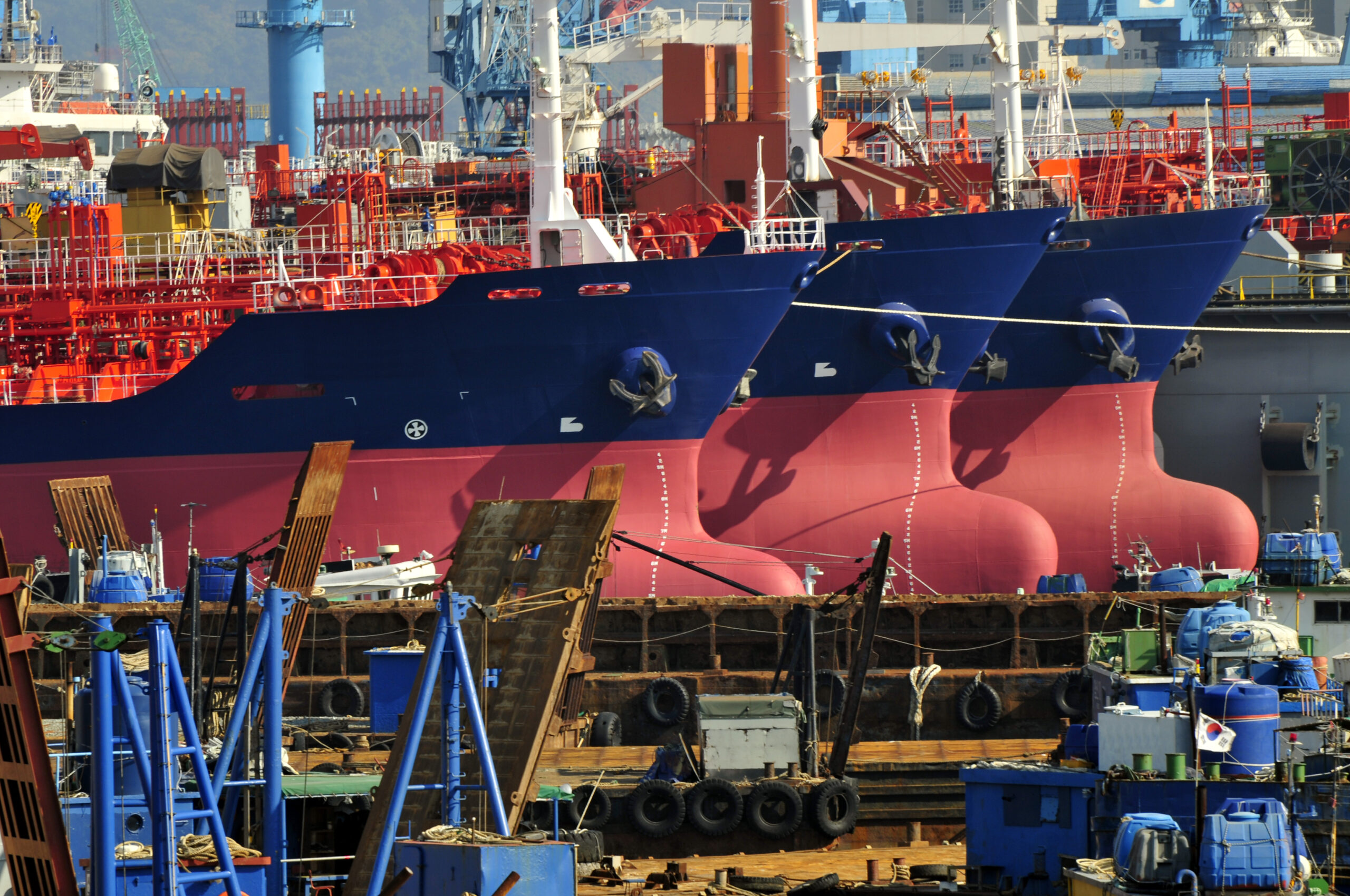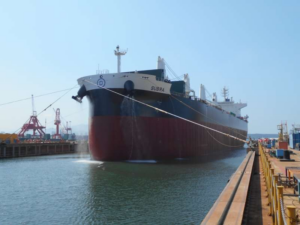South Korea’s shipbuilding industry is presently riding the waves of opportunity towards new growth, having secured 39.1 million compensated gross tonnage (CGT) worth of orders (as of August 2) and improving the nation’s industrial constitution and management conditions by winning high value-added ship projects.
However, the labor shortage in the shipbuilding industry remains a serious problem and the Korean government is working to solve this challenge.
The long-term recession and ensuing manpower leakage are acting as headwind to the industry, the South Korean ministry of trade, industry and energy says.
Accordingly, the government added 16,000 workers to the production manpower last year by improving the visa and training system, but the industry expects that demand for quality foreign workers will continue for some time.
On August 5, the ministry of trade, industry and energy (MOTIE) announced that it will establish an Overseas Shipbuilding Manpower Center in Serang, Indonesia.
The center aims to locally train skilled shipbuilding talent through Korean language and technology education in order to employ the educated manpower at Korean shipyards.
Initially suggested in March as part of the MOTIE-led K-Shipbuilding Next-Generation Initiative, the proposed measure has culminated into the aforesaid program over five months of consultation between Korea offshore & Shipbuilding Association (KOSHIPA) and Indonesia’s Ministry of Manpower.
The center was launched for the purpose of teaching local workers the Korean language and shipbuilding technology for preliminary site execution to enable seamless deployment without retraining in Korea, as well as establishing a stable workforce supply channel and bolstering industrial cooperation between the two countries.
Over a three-month period, the first batch of 30-40 trainees will be learning the welding techniques required across Korean shipyards, then apply for the welder qualification and certification program.
Meanwhile, they will also study to take the test of proficiency in Korean (TOPIK) and be given safety education courses for the prevention of safety accidents.
In this process, the Indonesian government is to recruit and educate the trainees and KOSHIPA is to dispatch experts and assist with testing.
The government aims to leverage this pilot project to address areas that need improvement and increase the number of trainees to strengthen the Overseas Shipbuilding Manpower Center’s role, while also establishing additional manpower training centers in other countries.



